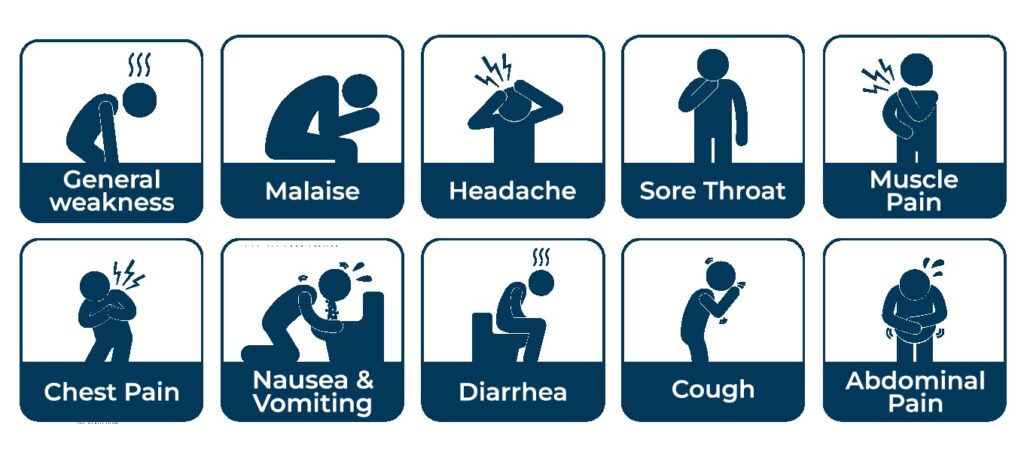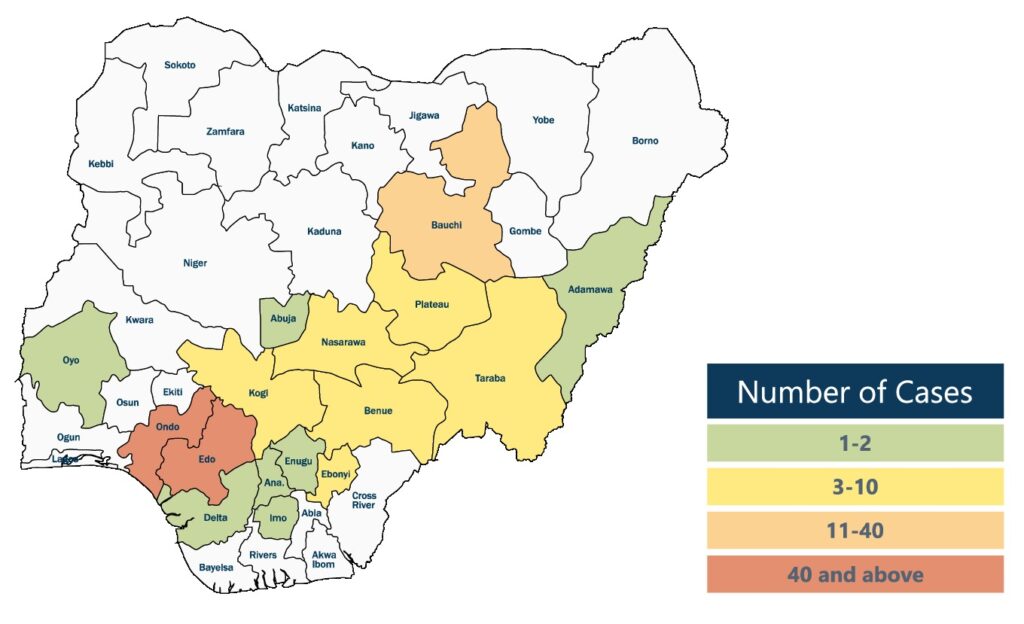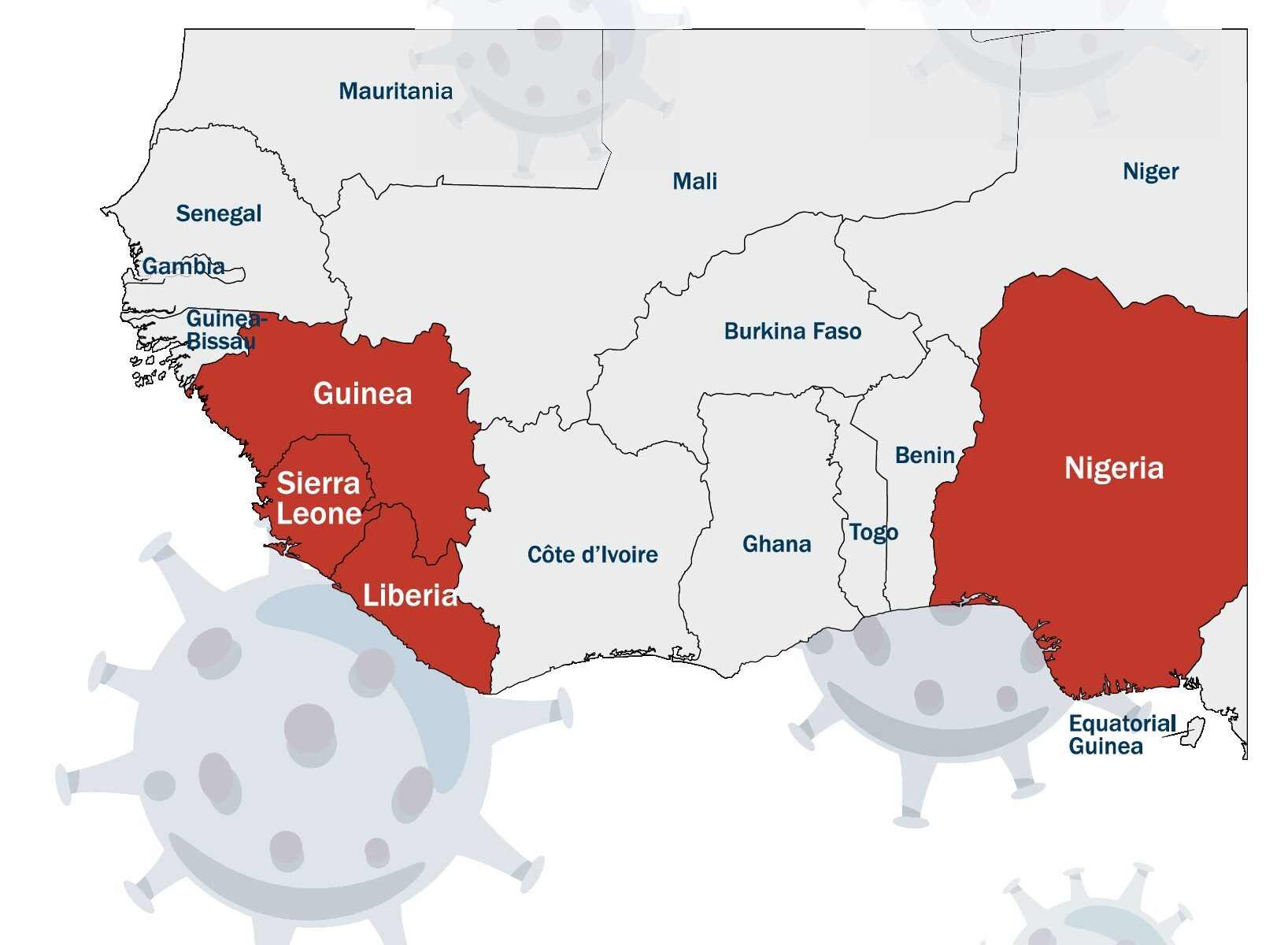Lassa fever (LF) is an acute viral illness and a viral haemorrhagic fever (VHF). The causative agent is a single-stranded RNA virus in the family Arenaviridae, the Lassa virus. It is endemic in parts of West Africa including Sierra Leone, Liberia, Guinea and Nigeria. The first documented case occurred in 1969. Lassa fever is named after the town in Nigeria where the first cases occurred.
When is the Lassa Fever season?
The peak of Lassa fever cases in humans typically occurs in the dry season (December-April) and in the wet season (May – November).
What are the symptoms?
People suffering from Lassa Fever generally encounter few or all the following symptoms:

Who are at higher risk of exposure to Lassa Fever?
Following people are at higher risk:
- Adults aged 65 years and above
- Adults with certain chronic health conditions such as asthma, heart disease, diabetes etc.
- Pregnant women
- People with disabilities
- People suffering from HIV/AIDS
- People suffering from cancer
How does the Lassa Fever spread?
- Human transmission of Lassa virus typically happens through ingestion orinhalation.
- The virus is transmitted by Mastomys rodents in their urine and droppings,and direct contact with these materials can result in infection through handling, consuming infected food, or exposure to open wounds.
- Person-to-person transmission of Lassa virus is possible after exposure to virus in the blood, tissue, secretions, or excretions of a Lassa virus-infected individual.
- Lassa virus is not transmitted through casual touch (including skin-to-skin contact without exchange of body fluids).
- The Lassa virus may be transmitted by infected medical supplies, such as overused needles.
What are the number of cases of Lassa Fever?
In Nigeria, the situation report as of 22 January 2023, showed a total of 244 confirmed cases with 37 deaths and a case fatality rate of 15.1 percent from 16 states. Infection and death among the healthcare workers accounted for 5 and 1 of the of the confirmed cases and deaths respectively.

Is there any treatment?
- Ribavirin, an antiviral drug, has been used with success in Lassa fever patients.
- It has been shown to be most effective when given early in the course of the illness.
- Patients should also receive supportive care consisting of maintenance of appropriate fluid and electrolyte balance, oxygenation and blood pressure, as well as treatment of any other complicating infections.
What is the risk level of Lassa fever?
The current overall risk is considered high at national level. The Nigeria Centre for Disease Control and Prevention (NCDC) has activated the national multisectoral Emergency Operations Centre for Lassa Fever (LF-EOC) at level 2 to coordinate and strengthen ongoing response activities in the country.
The overall regional and global risk is considered low due to minimal cross-border transmission from Nigeria to neighbouring countries. Lassa fever is known to be endemic in West African countries, primarily in Sierra Leone, Guinea, Liberia and Nigeria, but may exist in other countries in the same region.
Recommendations
- Putting food away in rodent-proof containers and keeping the home clean help to discourage rodents from entering homes.
- When caring for patients with Lassa fever, further transmission of the disease through person-to-person contact or nosocomial routes can be avoided by taking preventive precautions against contact with patient.
- Such precautions include wearing protective clothing, such as masks, gloves, gowns, and goggles; using infection control measures, such as complete equipment sterilization; and isolating infected patients from contact with unprotected persons until the disease has run its course.
- Advised to follow the Nigeria Centre for Disease Control and Prevention (NCDC) website at https://ncdc.gov.ng/ and Twitter handle at https://twitter.com/NCDCgov and helpline numbers on Toll Free Number: 6232; WhatsApp: 234 708 711 0839; SMS Number: 234 809 955 5577 for latest updates on the Lassa fever.


